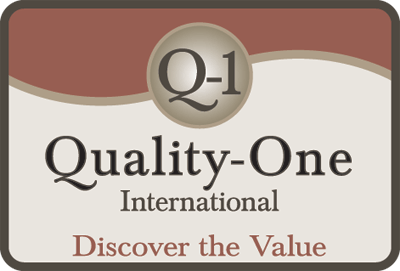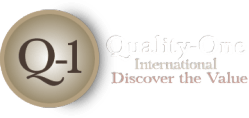Reliability Engineering
– Introduction & Services –
⇓ Introduction to Reliability Engineering
⇓ What is Reliability Engineering
⇓ Reliability Engineering Consulting

Introduction to Reliability Engineering
Every day we rely on certain things to operate properly. When we rise in the morning, we turn on the lights and many of us will make coffee. If the coffee maker fails to operate properly it makes for a rough morning. In general, we live in a country with a reliable power grid so we just assume it will always be there whenever we need it. There are many examples of products we depend upon every day, for example when you leave for work you expect the car to start and as you travel, it is always advantageous if the brakes and steering work properly as well. For many people, one of the most important products we rely on is our cell phone. When we stop and think about it, many things we use every day are reliable. If any one of these items was to fail to operate properly, it could have a wide range of impact on our lives, from a simple inconvenience to a possible emergency. The fact is that we expect the products we purchase and the services we use to be reliable; we depend on them to operate properly on a continual basis. Companies must produce reliable products in order to maintain or expand their customer base. The reason that many products, machines or services do work as needed, and when needed, is the application of Reliability Engineering.
What is Reliability Engineering
Reliability Engineering concentrates on the estimation of risk, calculation of probability and prevention of failure over a products lifetime. The purpose of Reliability Engineering is to ensure a product will consistently meet the customer’s expectation to perform their intended function or functions over a set period of time under specified conditions. Reliability Engineering concentrates on the costs of failure including machine or system downtime, spare parts inventory, repair equipment and possible warranty cost. Reliability Engineering employs many types of analysis. The mission of the Reliability Engineer should be to identify potential reliability problems as early as possible in the product lifecycle. To proactively improve product reliability, the design for reliability process is implemented during the design stage of a product. Design changes are easier and less expensive to make early in the product development rather than after capital expenses, product launch or during full production. Effective reliability modeling can predict a product system or component’s reliability prior to implementation. Reliability Engineers must not only be proficient in the use of proper methodologies and analysis tools, they must also know which tools are most effective during each phase of the product development and throughout the product life cycle. Some examples of tools used in Reliability Engineering include but are not limited to:
- Weibull Analysis – Sometimes also referred to as life analysis, Weibull is an effective tool used for analysis of historical failure data and producing failure distributions
- Fault Tree Analysis (FTA) – A top-down approach which starts with defining top-level issues then using a deductive approach, incorporating both parallel and series combinations of possible failures, to determine the root of the problem and take corrective action prior to its occurrence
- Failure Mode and Effects Analysis (FMEA) – An examination of potential failures that may occur and their effects on any part of a system, along with determining the possible causes of failure and their likelihood of occurrence
- Accelerated Life Test (ALT) – A method of time-based testing by increasing loads in order to produce age-to-failure data using few data points
- The data points are scaled to replicate the normal loads.
- Highly Accelerated Life Test (HALT) – Performed by heavily stressing the product to rapidly induce failure modes thereby identifying weaknesses in the system
- HALT tests are stress-based rather than time-based (acceleration factors are not the primary focus)
- Reliability Centered Maintenance (RCM) – This process is used to determine the maintenance requirements for a system or production process to ensure their consistent operation within desired parameters
- RCM is often used to identify and establish safe minimum levels of maintenance
The numerous reliability tools work together to gather information regarding the product reliability and reveal potential problems. The Reliability Engineer, along with the product team, can analyze this information and develop appropriate corrective actions and product improvements. In general, the main goals of Reliability Engineer are as follows:
- Apply engineering knowledge, experience and proper tools to predict, prevent and/or reduce the likelihood of product failure
- Identify and analyze any failures that do occur and determine their root cause
- After all, we cannot prevent 100% of possible failures, but we can determine the true cause and address them
- Develop and implement effective corrective actions when failures occur and identify the root cause to prevent repeat issues
- Utilize methods for estimating risk and reliability of new designs and study reliability data
Therefore, the most important skills required of a Reliability Engineer include capability to understand and anticipate possible failure modes, their causes and how to prevent them. In addition, the Reliability Engineer must be proficient in the use of methods and tools used to analyze designs and data. As previously stated, they must also know which tools are most effective during each phase of the product development and throughout the product life cycle. Reliability Engineering, when implemented properly, can work to predict and prevent product failures thereby reducing warranty costs and increasing a business’s bottom line and solidify brand equity.
Reliability Engineering Consulting
At Quality-One, we offer Reliability Engineering Consulting for companies seeking to develop and execute a robust Reliability Engineering implementation plan. In addition, we offer assistance for companies that have recognized a need to make improvements to their current system or introduce Reliability Engineering into additional business units or facilities. Our experienced team of Reliability Engineering Consultants may provide:
- Guidance in the development of a strategic plan to implement Reliability Engineering within your organization and integrate it throughout your organization
- A better understanding of the status and capability of your current Reliability Engineering practices
- Coaching for your management teams while establishing or improving your Reliability Engineering system and tools
- Various documentation and ready-to-use templates to help expedite implementation and acceptance of Reliability Engineering methods and tools within your organization
Our Reliability Engineering Consulting can provide the stimulus required to get you off the starting line and headed to the finish line and big wins reflected in the improved reliability of your products and processes. Implementation of Reliability Engineering methodologies and tools will improve communication between the various departments and disciplines within your organization enabling you to design reliability into your product and processes.
Reliability Engineering Training
Reliability Engineering training provided by professional subject matter experts with years of experience and comprehensive knowledge is vital to the success of your implementation process. At Quality-One, we have the professional resources, experience, knowledge and commitment that result in highly effective Reliability Engineering Training. In addition, we also offer targeted training on multiple Reliability Engineering analysis tools. We have multiple training options available, including:
- Onsite Training at your facility, where one or more of our professional instructors will provide effective, professional training to your teams using, examples and sharing experiences relevant to your products and processes.
- Offsite Training at one of our Technical Training Centers is an option that allows the participants a chance to escape the interruptions from daily work activities and devote their full attention on the subject matter. This generates increased knowledge transfer and a higher level of engagement and participation.
- Online Overviews are also available and provide the participant with an introduction to Reliability Engineering methods and tools. The online course is self-paced allowing the participant to work around their busy schedule. Content is available 24/7, and the participant will have 30 days to complete the course.
Regardless of the method, Reliability Engineering training provided by Quality-One is a very wise investment. Nothing can have the same impact to your organizations success than investing in their people through professional training. Organizations who invest in their people are investing in their own success.
Reliability Engineering Support
Most companies today are looking for methods to improve product reliability while at the same time reducing operating costs. Planning and implementing Reliability Engineering methods and tools requires time and resources. At Quality-One, we can provide the support you require to successfully implement Reliability Engineering at your company. Whether your need is in the form of guidance, facilitation or direct hands-on force multipliers, we will provide the support you need. Long-term or short- term support options are available to meet your needs.
Numerous benefits follow the proper implementation and integration of Reliability Engineering methods and analysis tools within your organization. You can improve your product and process reliability, reduce warranty costs and strengthen your brand equity. Reliability can and will have a positive impact on your bottom line. For additional information on Reliability Engineering or the corresponding analysis, tools contact the subject matter experts at Quality-One. At Quality-One, your success is our business!
Learn More About Reliability Engineering
Quality-One offers Quality and Reliability Support for Product and Process Development through Consulting, Training and Project Support. Quality-One provides Knowledge, Guidance and Direction in Quality and Reliability activities, tailored to your unique wants, needs and desires. Let us help you Discover the Value of Reliability Engineering Consulting, Reliability Engineering Training or Reliability Engineering Project Support.
